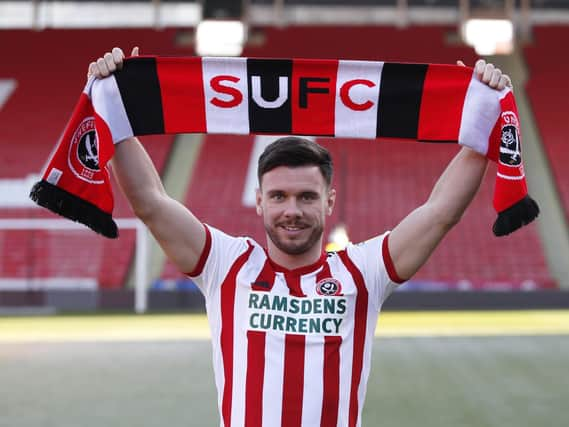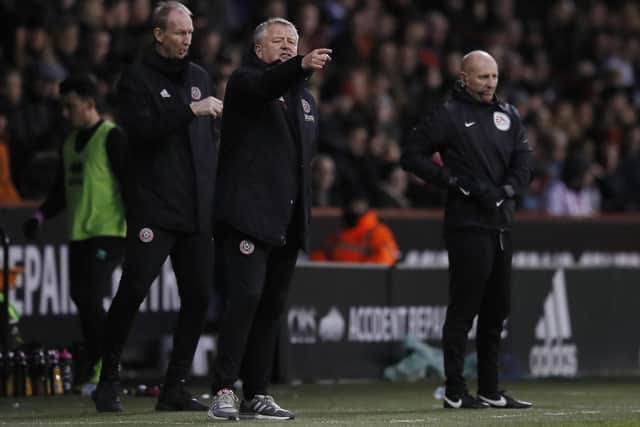Sheffield United: By almost every measure, Chris Wilder’s squad is now stronger than at the beginning of the transfer window


As the clock ticked towards 11pm and the window swung to a close, Chris Wilder was sat at home toasting Scott Hogan's move from Aston Villa, not swearing at office equipment while furiously punching numbers into his mobile phone.
The United manager's relaxed demeanor confirmed a job well done. Capturing Hogan, on a season long loan from their Championship rivals, marked the final phase of a makeover designed to equip his squad with the tools required to maintain its challenge for a top two finish. And it was completed before the 51-year-old's negotiators had even ordered lunch.


Advertisement
Hide AdAdvertisement
Hide AdHogan, aged 26, is expected to make his debut for United tomorrow when Bolton Wanderers travel to South Yorkshire. Kieran Dowell and Gary Madine, who are still finding their feet at the club after leaving Everton and Cardiff City respectively, are also likely to feature after making their first league starts against Norwich City last weekend.
Analysing United's business over the past 30 days, studying how it has changed the dynamic of the options at Wilder's disposal, some interesting themes emerge. They reveal those areas where the manager and his coaching staff had concerns at the beginning of the season and, six months on, the challenges they expect to face over the next 17 games as third-placed United attempt to chase down leaders Leeds and their most recent opponents in second.
The first and perhaps most noticeable difference between the side which started the campaign and the one set to face the visitors from Greater Manchester is experience. Although the one beaten 2-1 by Swansea City in August boasted more promotion winners, the number of players who have negotiated safe passage out of Championship has increased three-fold.
With United set to face Middlesbrough, West Bromwich Albion and their rivals from Elland Road before the end of next month, that knowledge could prove crucial as Wilder's charges attempt to cope with the psychological pressure of competing at the top end of the division. With only 13 points separating its leading seven teams, an ability to retain focus, especially following a disappointing result, will be key.


Advertisement
Hide AdAdvertisement
Hide AdAnother shift has been the average age of the attack tasked with firing United towards the Premier League. Given Wilder's preference for consistent selections and tactics, reducing it from 30 to 28 should reduce its vulnerability to injury. Madine and Hogan have also given it more physical presence with the latter, like another recent signing Conor Washington, known for peeling off the shoulders of defenders. This also provides United greater strategic flexibility.
Although there will inevitably be concerns that Oliver Norwood, acquired on a 'loan to buy' basis in August, is United's only actual purchase of the January window, the associated costs of brokering temporary agreements with top-flight and second-tier clubs must be recognised. Doubtless Wilder would have preferred to push through another permanent deal, particularly following David Brooks' £11.5m sale to Bournemouth last summer, but all three of his first choice targets have been secured. If they deliver, then the financial windfall associated with Premier League status means those arrangements can be revisited.
It should also be noted that United rejected West Ham's approach for John Fleck before unveiling Hogan. The offer, £4m, was as derisory as the proposed payment schedule. The unwillingness to encourage further discussion sent out the desired message.
With United's interest in Hogan and Dowell tracing back to the close season, Wilder's recruitment policy is clearly well-defined. Sticking too it, refusing to repeat the mistakes of previous regimes by permitting deviations, has resulted in more coherent performances. By any measure, United emerged from the transfer window in better shape than when they entered it.